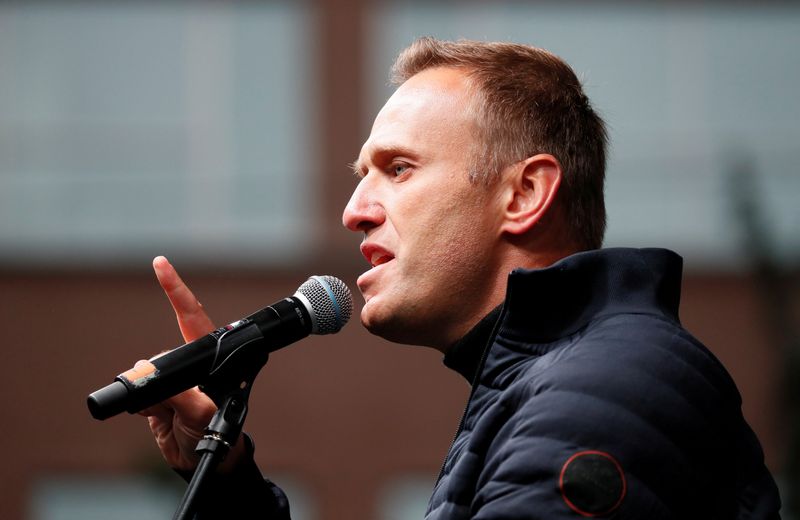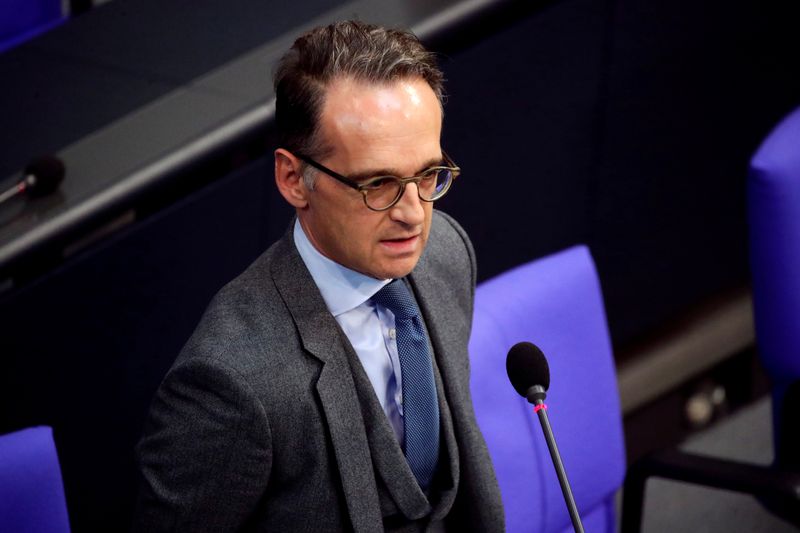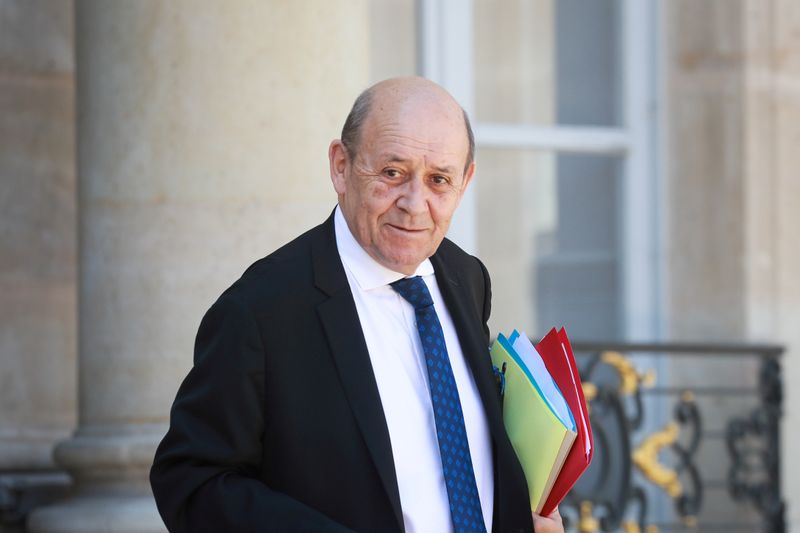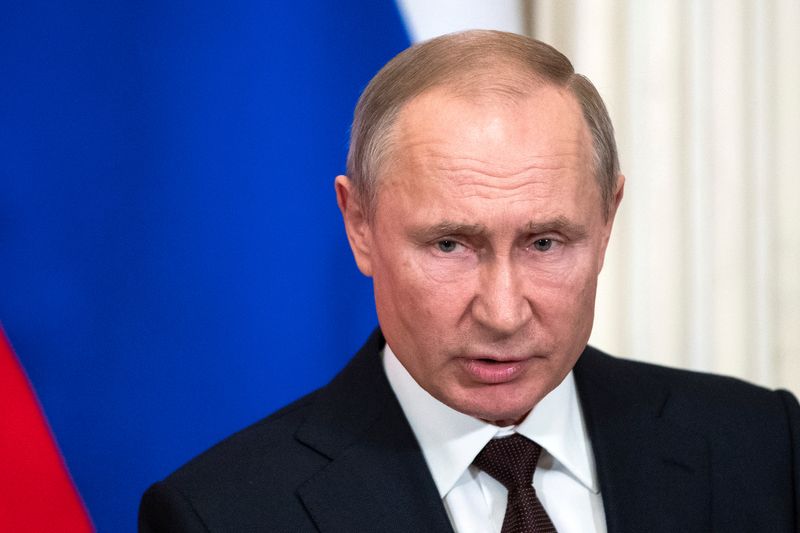PARIS (Reuters) – The EU must stand up to Russia when it violates international norms, France and Germany’s foreign ministers said on Thursday, adding that a decision to push sanctions over the poisoning of a Kremlin critic Alexei Navalny did not end dialogue.
France and Germany said on Wednesday they would propose European Union sanctions against Russian individuals after receiving no credible answers from Moscow over the use a nerve agent on Navalny.
Several Western governments have said Russia, which has denied accusations by Navalny that it was involved in poisoning him in August, must help in investigations or face consequences.
“Dialogue is not an excuse for playing for time. We must be very clear: dialogue with Russia does not mean doing it a favour,” France’s Foreign Minister Jean-Yves Le Drian told a security conference in Bratislava.
“It does not mean abandoning our ambition to build a peaceful continent. On the contrary, it means defending this ambition by asserting firmness … and getting ready to play hardball whenever necessary.”
Speaking at the same conference, Le Drian’s German counterpart Heiko Maas echoed those comments.
We need to be able to play hardball but at the same time we must never let dialogue be stopped,” Maas said, according to a translation into English. “We need Russia to solve the conflicts in Syria, in Libya, in Ukraine.”
EU foreign ministers are expected to give their political support for sanctions on Monday, but they are not expected to be approved immediately as legal texts must be prepared and cleared by experts from the 27 EU states.
The decision and speed with which Europe’s two main powers agreed to push ahead with sanctions suggested a hardening of the bloc’s diplomacy towards Moscow, which said on Wednesday that it no longer considered “business as usual” to be possible with Berlin and Paris.
French President Emmanuel Macron has tried to reduce distrust between Russia and the West since coming to power in 2017, hoping to enlist Russian help in solving the world’s most intractable crises.
However, his efforts for more dialogue have upset other European Union member states who say little has changed to merit a thaw in relations.
(Reporting by John Irish and Matthieu Protard; Editing by John Stonestreet and Alison Williams)



























